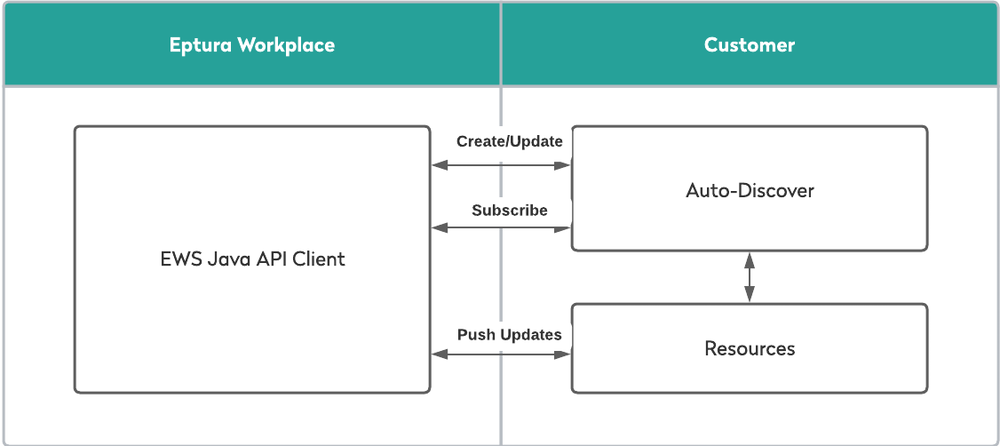Automated User Provisioning
Level: Eptura Implementation team / Client IT team
This describes options for importing users into the application from a corporate directory. An Eptura Workplace representative will work with the customer to understand needs and requirements, as each process varies based on module, customer and business requirements.
Import via SFTP
The customer uploads a file to Eptura Workplace's SFTP server on an interval determined at their discretion. The SFTP account is exclusive to the customer, securely isolated from other customer accounts. The customer’s developer has the option of using either a password- or key-based authentication, and inbound connections to Eptura Workplace's SFTP server can be blocked after a predefined number of login attempts for additional security.
When the process is in place, the customer will upload a file. When complete, Eptura Workplace's directory watcher process will pick up the file and begin processing automatically.

For clients using the Move module, we have a process to create New, Terminate, and Modify tickets, which ar used to make changes to employee records, such as adding new employees, terminating existing employees, and moving employees between buildings. Learn more in Eptura Workplace AUP with Ticket Creation.
Additional Encryption Using PGP
Files sent to our SFTP server are fully encrypted in transit and are only accessible to employees who require access for business purposes, with access granted using the principle of least privilege. Additionally, all files stored on the SFTP server at Azure are encrypted at rest using transparent data encryption (TDE); however, if your security team requires an additional layer of encryption for SFTP import files, Eptura Workplace can also support PGP encryption using the RSA protocol.
File Format and Requirements
File format options are flexible, allowing delimiter separated values (comma, tab, pipe) or XML. The name of the file must be alphanumeric and the only special characters allowed in the file name are '-' (hyphen), '_' (underscore), or '.' (period). No spaces are allowed. Delimited files must have a header row and fields should be qualified with double quotes. It is Eptura Workplace's experience that XML is the most reliable file format, as a closing element confirms a complete file has been received.
Eptura Workplace requires a field with a unique key (such as an employee id). This key maps existing user records with data in the customer’s file. Users in the file without a matching record in the application will have an account created for them. Accordingly, users in the application without a matching record in the file are deactivated. Matching user records are updated if required.
Standard required fields are: employee ID (any unique identifier may be used as a substitute), first name, last name and email. Depending on use case, other fields may be needed.
AUP Log File
If you have any issues with AUP then head over to Read the Eptura Workplace AUP Logs.
